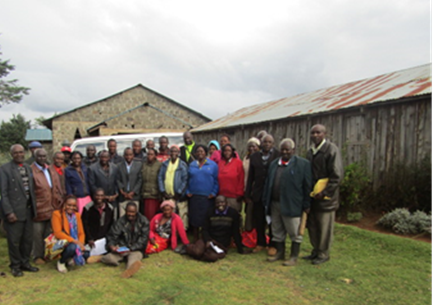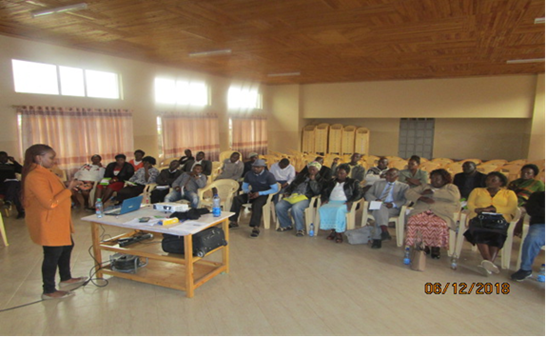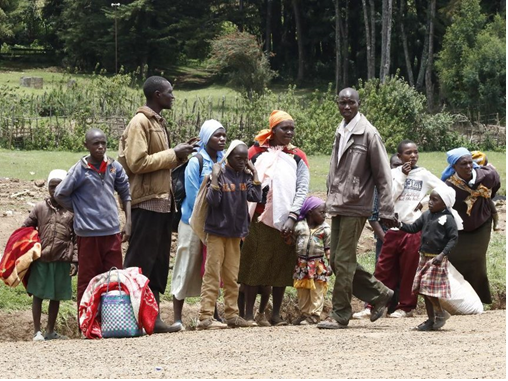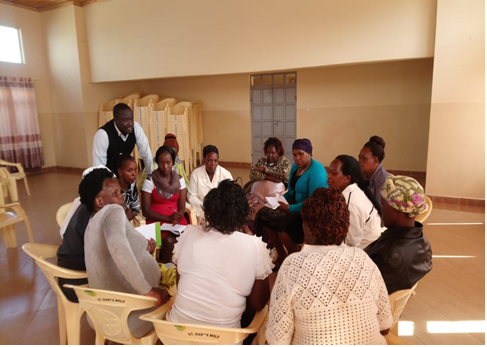Constructing peace between individuals, families, ethnic communities, countries and continents is of paramount importance. We should not let out personal or collective identities divide us. Shalom Centre for Conflict Resolution and Reconciliation (SCCRR) through its research methodology identified Nakuru County as one of the counties in Kenya prone to conflicts in times of elections in the country. The county has experienced issues related to ethnic identity dominating the violent conflicts that periodically break up in different parts of the nation. Shalom-SCCRR was approached by local community leadership and the Catholic diocese of Nakuru to intervene and enhance peaceful co-existence among the communities in Molo and Kuresoi South sub-counties. The unresolved historical land disputes and negative ethnicity significantly influenced by political incitement/divisive politics surfaced as the major cause of conflict among ethnic communities in the County.

Women & men participants from different ethnic communities in conflict being assisted by the Shalom team
Whilst the priority is to enhance the capacity of influential opinion shapers in managing the prevailing identity based conflicts, previous outbreaks of hostility have demonstrated the importance of providing space in the grassroots level for the inter-ethnic dialogues, community conversations and joint peace initiatives. This approach has been very relevant as the cruelty in the County is characterized by ethnic violence and ethnic cleansing, where some ethnic groups are targeted for removal as they are stereotyped as ‘weeds,’ ostensibly to be sent back to their ‘ancestral lands’.

SCCRR’s Joyce Wamae, M.A. training participants on managing identity-based conflict in Molo, Nakuru County
Emerging from the recent training in December 2018, it was noted that, each community residing in the two sub-counties identify itself with land, which access to its ownership and usage has remained an underlying cause of violence. Nonetheless, commercialized livestock theft has always divided the ethnic communities in these areas creating tribal identities of WE verses THEM. Additionally, the communities in these areas have suffered the consequences of identity conflict as the absence of mechanisms to neutralize negative ethnic profiling and stereotypes has been a major precursor to ethnic tensions. This, so often has resulted in bloodshed; human displacement; disunity among the communities; and retaliatory attacks.

Displaced families in search for safety after being evicted from their homes in Njoro, Nakuru County
(Source: Standard Newspaper September 13, 2018)
It is in this effect that SCCRR is currently engaging 70 selected influential stakeholders with equal representation from the Kalenjin, Kikuyu, Kisii and Luhya ethnic communities in understanding the skills of managing ethnic-based conflicts in the sub-counties of Nakuru. This is the first intervention in the reconciliation efforts which aims at restoring the best possible relationships among these conflicting communities-this being an integral part of post-conflict reconstruction. The intervention will be linked to and anchored on an in-depth knowledge of identity as a concept and the management of identity conflicts.

SCCRR’s Arthur Magero, M.A., guiding women in group discussion
SCCRR is committed to ensuring that the communities living in Molo and Kuresoi South are equipped with analytical skills and knowledge in managing interethnic conflicts so as to be able to initiate peaceful interventions against arising conflict situations.
By:
Joyce Wamae Kamau, M.A., Assistant Program Manager, Peace Education and Development
Arthur Magero, M.A., Program Officer, Head of Peace Education Department

